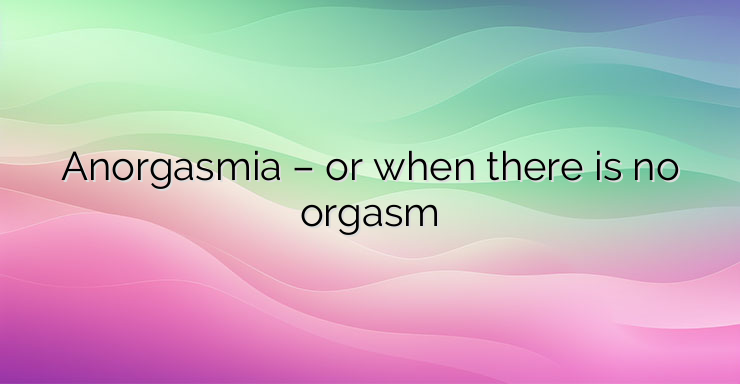Anorgasmia is the inability to reach orgasm. The condition is more commonly seen in women, especially in the post-menopausal period. In men, in most cases, anorgasmia is not accompanied by erectile dysfunction. The problem of anorgasmia has psychological consequences because it causes dissatisfaction with the sexual act, mental retardation and discomfort. The prevalence of the condition is difficult to determine. Matters of this nature are not discussed publicly and people are not aware of who to turn to for medical advice. Orgasm is a cerebral experience. Therefore, the reasons for its absence are sought at different levels of the nervous system – peripheral nerves, spinal cord and brain. In the case of damage to the autonomic nerves that carry information from and to the genital area, both the ability to reach orgasm and erectile function in men can be impaired. Such damage is possible with injuries in the pelvic region, operations on the prostate or tumors in the small pelvis, and others. For women, operative interventions on the internal genital organs, rupture of vessels and nerves during complicated childbirth, Caesarean section and others are the leading ones. Among the causes of polyneuropathy are certain metabolic disorders such as diabetes and chronic alcohol abuse. In these cases, controlling blood sugar and limiting alcohol consumption can improve the condition if the nerves are not irreversibly damaged. The next unit is the spinal cord. At this level, nerve fibers can be interrupted by a mechanical (trauma) or infectious factor (transverse myelitis). NEWS_MORE_BOX Brain causes of anorgasmia are most multifaceted. Among them are mental retardation, chronically accumulated stress, the inability to relax during sex, complexes of any nature. A number of drugs acting at the brain level and used in psychiatry have as a side effect a decrease in libido and anorgasmia. Such are selective serotonin reuptake inhibitors (SSRIs). They are used as antidepressants because of their effect of increasing the serotonin level in the synaptic contacts between nerve cells. On the other hand, SSRIs cause a decrease in the level of dopamine in the brain, which is associated with the transmission of information in those areas responsible for the experience of orgasm. Not all patients using SSRIs experience these side effects. Not all SSRIs cause similar disturbances. However, the link between SSRIs and anorgasmia has been scientifically proven. SSRIs are not the only medications for the treatment of depression, and when their unwanted effects occur, they can be replaced with another group of antidepressants and their negative impact eliminated. The change in the ratio of neurotransmitters in the brain with drug use also leads to chaos in perception, including the ability to reach orgasm. These are causes of secondary anorgasmia.There is also primary anorgasmia, which is much less common. People who are born with the inability to experience an orgasm do not seek medical help, and the recorded cases, as well as the reasons for them, are not clarified.


Leave a Reply